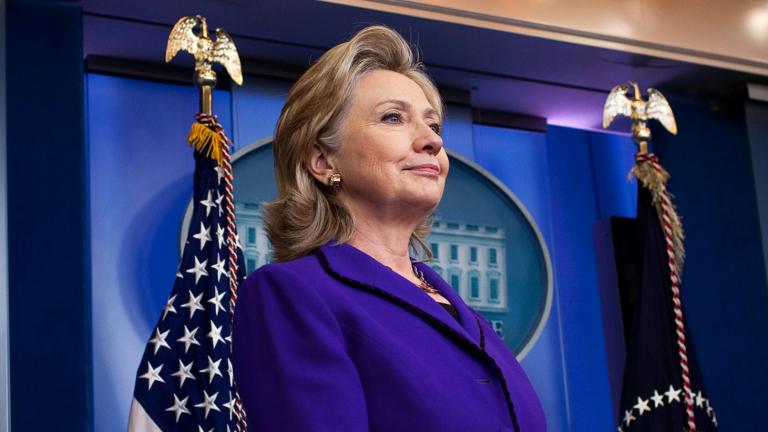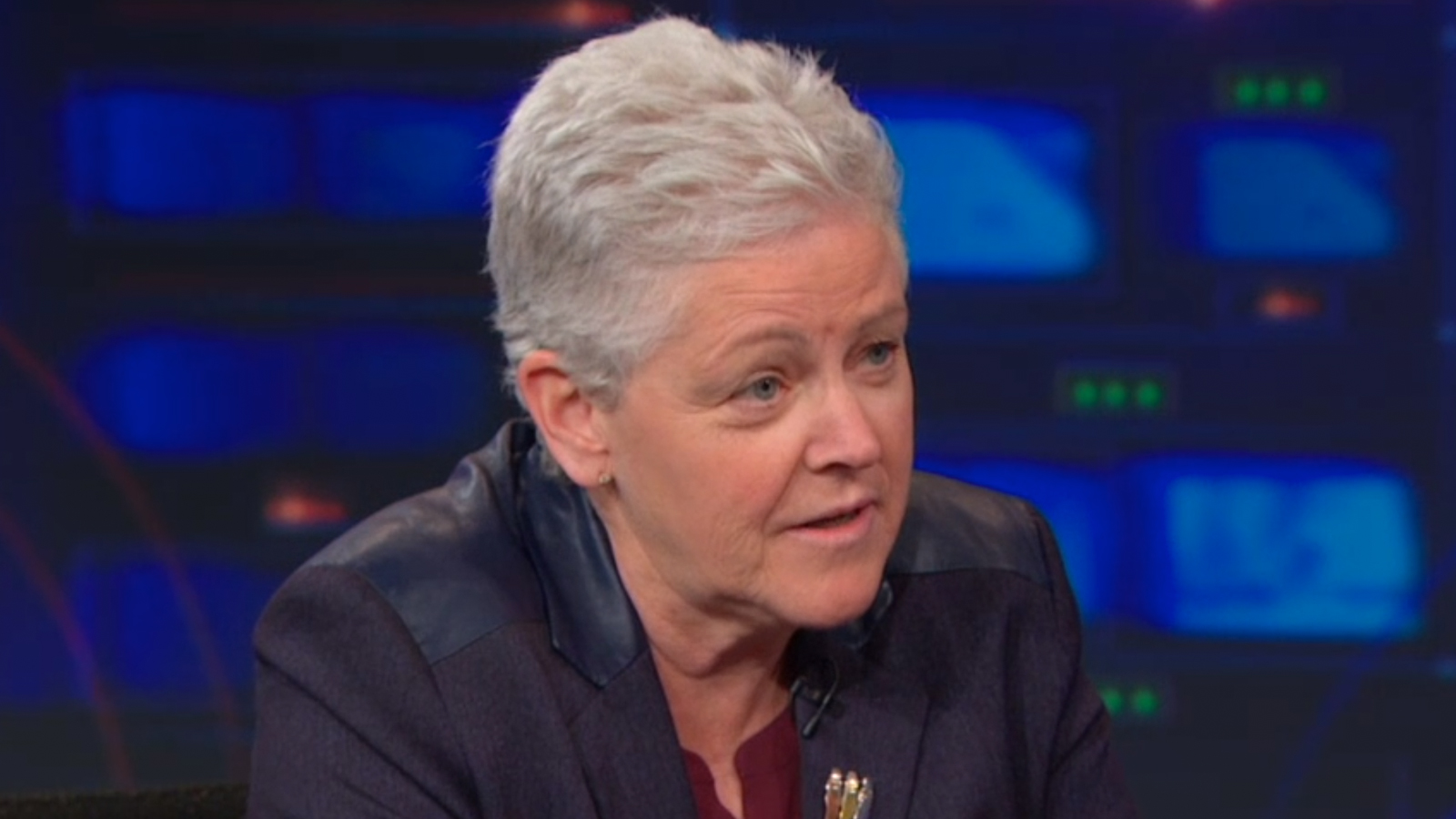If you are a Congressperson, there are a few different ways to grill a government agency head so that it works out to your advantage: You can grandstand and preach to create a soundbite that might get picked up by your local media, you can use the opportunity to tell the official about a local problem that needs fixing, or you can ask genuine questions.
But if you combine the grandstanding and the questions, you’d better be sure you know the answers. There’s nothing quite like asking indignant rhetorical questions that turn out to yield real answers, answers that expose the fact that you’ve been misinformed. That just makes you look dumb — at least when facing someone as smart and cool under pressure as EPA leader Gina McCarthy.
That’s exactly what happened on Thursday at the House Agriculture Committee, where McCarthy faced a series of pointed questions. More than anything else, the committee members asked McCarthy about WOTUS, the “Waters of the United States” rule. Here’s the full background on that. In short, a 2006 Supreme Court ruling created great confusion as to what is covered in the Clean Water Act. For years, politicians from across the political spectrum have been asking the EPA to clear this up.
But when the agency made the WOTUS rule to clarify, farmers and Republicans hated what the agency had come up with. They fought back using conspiracy theories and worst-case scenarios. “The game plan is to emphasize the scary possibilities,” an anonymous member of the anti-WOTUS coalition told the New York Times. “If you can get Glenn Beck to say that government storm troopers are going to invade your property, farmers in the Midwest will light up their Congressmen’s switchboards.”
Perhaps you can see where this is going? Some conservative members of the House Ag Committee imbibed a bit too much of their own anti-WOTUS propaganda and really came to believe the theories of government overreach that were circulating on the talk-radio circuit. When McCarthy gently set them straight, they seemed bewildered, and incapable of processing her answers.
Take this exchange between McCarthy and Scott DesJarlais of Tennessee (the video’s here — at about the 1:30:00 mark):
DesJarlais: You made it sound like Congress is imploring you to move forward with this WOTUS, where did the idea for WOTUS come from and basically who was in charge of drafting this package?
McCarthy: Actually WOTUS, or the Clean Water rule, came because the Supreme Court told us that we needed to make improvements to the law based on science. We needed to prove a connection, we needed to do a better job.
DesJarlais: But it wasn’t Congress like you said it was.
McCarthy: It actually was followed up by, Congress asked us to take action to address concerns …
DesJarlais: But you went around Congress and you used a rule-making process, correct?
McCarthy: No sir, no sir, we were actually asked to do a rule-making process for clarification. Whether you disagree with that rule or not is fine but the EPA didn’t generate this on its own.
DesJarlais: What’s the cost going to be to generate this rule?
McCarthy: It’s actually going to be a net benefit of something in the order of $184 million.
DesJarlais: A benefit not a cost?
At this point DesJarlais might have begun to have the slightest suspicion that he’d been fed some bad information, but if so he gave no sign of it.
DesJarlais: Is this directive more from the White House?
McCarthy: I don’t know what directive you are referring to.
DesJarlais: The Waters of the U.S.
McCarthy: No sir!
DesJarlais: ‘Kay because it’s certainly not from Congress — we voted both in the House and the Senate to stop it.
McCarthy: No sir, I just explained to you where the impetus came from.
Yes, politicians have tried to stop WOTUS in the House and Senate — but only after the EPA drafted the rule and they started hearing from constituents. What DesJarlais couldn’t seem to comprehend was that Congress really had asked the EPA to clarify this issue, the EPA hadn’t just dreamed WOTUS up as a nefarious plan for a government takeover of all farms. He had to try one more time:
DesJarlais: Why did the EPA decide it was necessary to do this?
McCarthy: Because of the lack of clarity and the inconsistency and the unfairness of the current process.
Behind this ham-handed attempt at an inquisition, there does lie a valid concern. Farmers feel that regulations are making it harder and harder for them to make a living, and they are absolutely right.
But this isn’t some conspiracy foisted upon them by Obama’s EPA. The people of the United States are demanding higher environmental standards, and the EPA has been slowly responding to that demand over the years. As most of the country has become more disconnected from farms, we’ve begun demanding more from them than we would if we all had farmers in the family and understood the tough choices they sometimes have to make.
Some of our demands are unreasonable — but not all. We’ve come a long way from the Mad Men days, when everyone thought it was fine to throw trash out your car window and drain your chicken manure into the watershed. It’s not the EPA that’s making life harder for farmers; it’s our changing norms.



